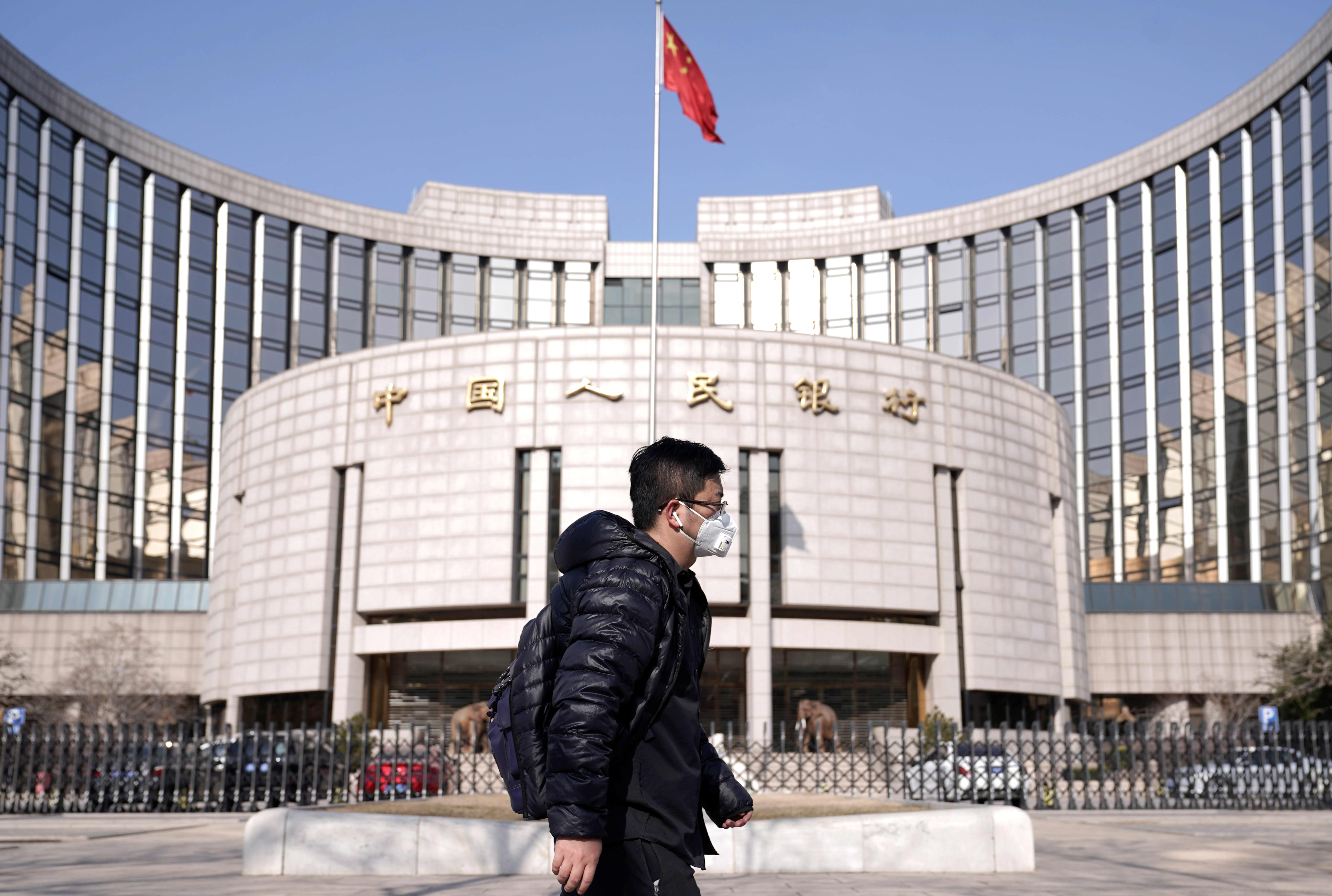
As China continues to reel from the spreading coronavirus, the world is looking for a familiar entity to swoop in and save the day: a central bank, in this case the People's Bank of China.
This time, though, even big rate cuts and other forms of easing may not be enough.
Central banks like the PBOC and its counterparts around the world — notably the U.S. Federal Reserve and the European Central Bank – have been bailing out economies and financial markets since the 2008 financial crisis. Trillions in digital money printing along with bargain-basement interest rates have been the main weapons of choice to combat recurring episodes of slowness.
On cue, the PBOC on Monday announced a massive reverse repo program — swapping high-quality securities for cash — along with corresponding cuts in short-term rates.
In the virus case, though, policymakers are facing a major unknown that comes at a time when China's economy already was slowing. This may be one instance, then, where opening the spigots on monetary policy isn't enough.
"We doubt that [the steps announced Monday] alone will be enough to put China's economy back on track," Hubert de Barochez, markets economist at Capital Economics, said in a note to clients. "The latest cuts will do nothing directly to offset the drag on economic activity from Chinese authorities' response to the epidemic – notably travel bans and business closures."
"And even in the most optimistic scenario – whereby the epidemic would be put under control rapidly and things would go back to normal soon – we think that the PBOC would need to cut rates again this year," he added.
That was a recurring theme as China's main stock index dropped nearly 8% Monday.
El-Erian warning
The PBOC said it would lop 10 basis points off its seven-day and 14-day reverse repo rates and inject 1.2 trillion of its local currency the renminbi through reverse repos. The moves did little to calm the selling in China, though U.S. stocks posted solid gains later in the day.
Economist Mohamed El-Erian, however, warned U.S. investors about buying into weakness considering the current circumstances.
"The playbook has worked extremely well and it's one that I've deployed, which is rely on central bank injections because the marketplace believes that liquidity can decouple us from fundamentals for a very long time," El-Erian, chief economic advisor for Allianz, said during an interview on CNBC's "Squawk Box." "Everyone seems conditioned to behave this way. But it assumes the shock is temporary, containable and reversible. Those are phrases that are very hard to associate with coronavirus."
Central banks could be reaching a point where they are "ineffective if not counterproductive" in combating current issues, he said.
Amid the worries about longer-ranging impacts from the virus, Citigroup has cut its outlook for China GDP this year. But it also thinks that ultimately monetary policy and fiscal policy, in the form of deficit spending from China, will converge to limit the damage and "arrest the downward spiral of economic activities," wrote Xiangrong Yu, senior China economist at Citi.
"We expect the negative economic impact of 2019-nCoV to concentrate in the near-term, before the virus is contained and the government starts to repair the economy," Yu said. He, however, also cautioned that the first quarter could see growth as low as 4.8%, and, "In light of the development of the situation over the past few days, we see the risk tilting more towards the downside."
Business - Latest - Google News
February 04, 2020 at 03:35AM
https://ift.tt/2u7Oig5
Why central banks may not be able to save China's economy from the coronavirus - CNBC
Business - Latest - Google News
https://ift.tt/2Rx7A4Y
Bagikan Berita Ini














0 Response to "Why central banks may not be able to save China's economy from the coronavirus - CNBC"
Post a Comment